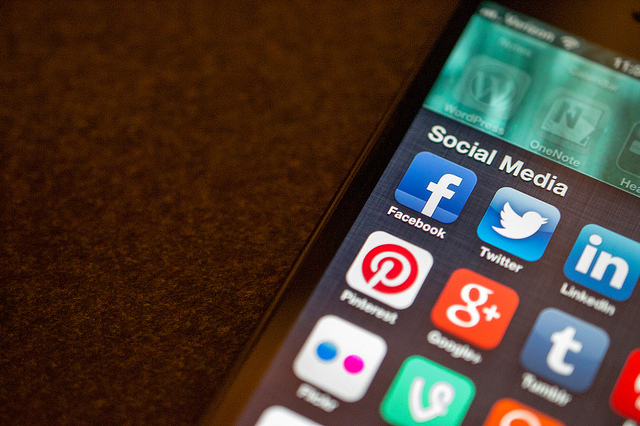
Mary Robinson Everybody Matters
When Mary Robinson speaks, people listen.
Not because she is the former President of Ireland, and the former UN High Commissioner for Human Rights, but because she is an inspiring and compelling woman.
My ten year old daughter and I went to hear her give the Christmas Lecture at Dundee University this weekend, and were not in the least disappointed. I had heard Mary talk at the London Summit of Family Planning earlier this year, when her speech was sadly cut short as she had a plane to catch.
The scent of mulled wine and a sense of anticipation filled the air of the foyer when we arrived. As the staff scurried around, setting up the tables for the reception after the event, we climbed the stairs to the main lecture theatre, catching an exciting glimpse of Mary on our way. The 350 seats of the lecture theatre were soon filled, as we organised our notebooks and pens, ready to take notes. My daughter remarked that she could still smell the ‘gloomy wine’.
After the VIPs had arrived and been seated, then there was a hush as we all looked towards the door. It swung open to reveal a very sheepish young man with a bottle of water and glasses, to the amusement of the audience.
Dundee’s Lord Provost Bob Duncan welcomed Mary to the city of Dundee, before she was formally introduced by University VP Chris Whatley.
Mary spoke of her decision to write her memoir being influenced by Ela Bhatt, who told when asked for advice, told her friend
‘Mary, you must. Our experience is not our personal property. It must be shared’
And so she did. She talked of her childhood and youth, and of the realisation that she was different to her classmates, who discussed what to do when they left school only as a stopgap to marriage. Mary didn’t know what she wanted, but it wasn’t marriage. She considering becoming a nun, until her parents sent her to Paris aged 17 years, to a finishing school. ‘And that changed everything’.
She returned from Paris, having had her eyes opened She discovered feminism, socialism, and that despite the privileges she enjoyed, that she was not equal to her brothers. She began to question, not the teachings of the Catholic Church, but the way in which it was put forward, in a very patriarchal way.
When she returned to Dublin, she was changed, and to her parents it was not for the better. Despite their best efforts to change her back, she continued to go her own way. She studied law at Trinity College, then went on to Harvard.
It was a time of change. The start of the Troubles in Northern Ireland, the Vietnam War, the civil rights movement and the assassination of Martin Luther King while Mary was studying in the States, .
Back in Ireland, she was elected to the Senate, where she campaigned for legalisation of Family Planning and of homosexuality. Mary talked movingly about the people she met who influenced her, such as Josie, who had been abused by the husband from whom she sought a judicial separation. Mary fought in the courts, not just on behalf of Josie, but on behalf of those who came after her.
In 1988 she decided to retire from elected public life, only to be surprised by a suggestion that she should think of becoming a candidate for the Irish Presidency.
It is fair to say that Mary Robinson transformed the Irish Presidency, from the day she took office and set a light burning in the kitchen window. A symbolic gesture to guide the Irish diaspora home, it showed the warm and compassionate side of the woman whose first interview as President was on a children’s TV show.
She spoke of being the first Irish President to meet the Queen, and of meeting Gerry Adams against the wishes of the British Government – and of some of her Irish countrymen and women, including her hairdresser who refused to do her hair on the morning of the meeting.
Mary attended the 1997 Pan African Women’s Conference in Rwanda, and she talked of the way in which Rwanda has furthered their advancement by championing women’s development. She stated:
‘I have seen the future of Africa, and she works‘
She left office in 1997, two months before the end of her term to take up the position of United Nations Commissioner for Human Rights, a move that she now admits was a mistake. The previous holder of the office had left unexpectedly, and she allowed herself to be hurried into the job. She talked of her regret, that some Irish people may have seen her hasty move as a sign that the Presidency was a mere stepping stone to bigger and better things. She realised later that the reason that the previous holder left early was because the job was so difficult, and indeed it brought her to the brink of a breakdown until her brother took her aside and gave her some very good advice.
Mary spoke about the work that she did at the UN, during which time she addressed the huge challenge of ensuring that Human Rights were central to UN policies. She realised that there were important rights that the richest countries in the world were not taking seriously. The rights to food, safe water, health care and education.
After her 5 years at the UN, she wanted to work on promoting Human Rights, particularly in African countries, working on health issues, and in particular on women, peace and security. In that time she realised that there was an issue that no one was as yet addressing. The conditions in many countries were worsening, and this was due to the changes in the weather.
In Liberia, she was told that where they had once had two predictable rainy seasons, they now had long rainy seasons which prevented the planting of crops, led to food insecurity, water shortages and threatened the livelihoods of many.
‘The poorest people are most affected but are least responsible for the change in climate …
We are warned by scientists that we are drifting towards an uncertain and unsafe world, but we do too little to ‘turn down the heat’…
We must talk about how climate change affects people.’
The Mary Robinson Foundation – Climate Justice was founded to draw attention to this important issue.
After the lecture, Mary answered some questions from the floor. First off the bat was a question about the legalisation of abortion in Ireland, following the death of Savita Halappanavar. As a former President, Mary is obliged to stay out of political issues. Perhaps it was wishful thinking on my part, but I sensed that she would love to rant about this, but was confined by her professionalism.
Next to ask a question, was Cat, my daughter, who has written an article for Jump! Mag, to be published simultaneously with this one. Mary answered with warmth and at length – you can listen to the audioboo on Jump! Mag. I liked the advice that girls should be true to their values, and be confident and willing to speak up.
The next question was about the renewal of violence in Northern Ireland Mary spoke of a sense of false complacency about the peace process, and disregard of the underlying issues that were not resolved. She called the violence of the weekend ‘a wake up call’ and brought up the idea of a Truth and Reconciliation Commission, which has helped in other areas of the world.
‘There is hatred that has to be addressed…
We have to learn to care so much that we get beyond the seeds of violence and build reconciliation and relationships for the future’
Later that evening, as Mary signed books and chatted to a long line of fans, a large television behind her broadcast scenes of cars burning in Belfast. The following days have seen the violent protests escalate, and we can only watch in horror and in hope that the authorities can calm the situation. Those of us who grew up in the shadow of the Troubles are now trying to explain the conflict to our children.
My daughter and I queued to have a book signed, despite the fact that I already have a Kindle edition of Mary’s memoirs Everybody Matters, I felt it would be a great memento for my daughter.
When we arrived at the front of the queue, Mary greeted my daughter with enthusiasm (despite the fact that she had been signing and smiling for well over an hour) and spoke kindly to my girl, signing the book with the advice







One Comment
Kate Takes 5 (@KateTakes5)
How lovely. She is a remarkable woman – I will have to look out for her book. When my Dad died this time 3 years ago she sent a card to the family expressing her condolences and admiration for him (he was a professor of law so had met professionally a number of times). I love that she took the time out to do that – it meant so much. Everybody matters.